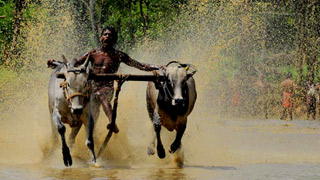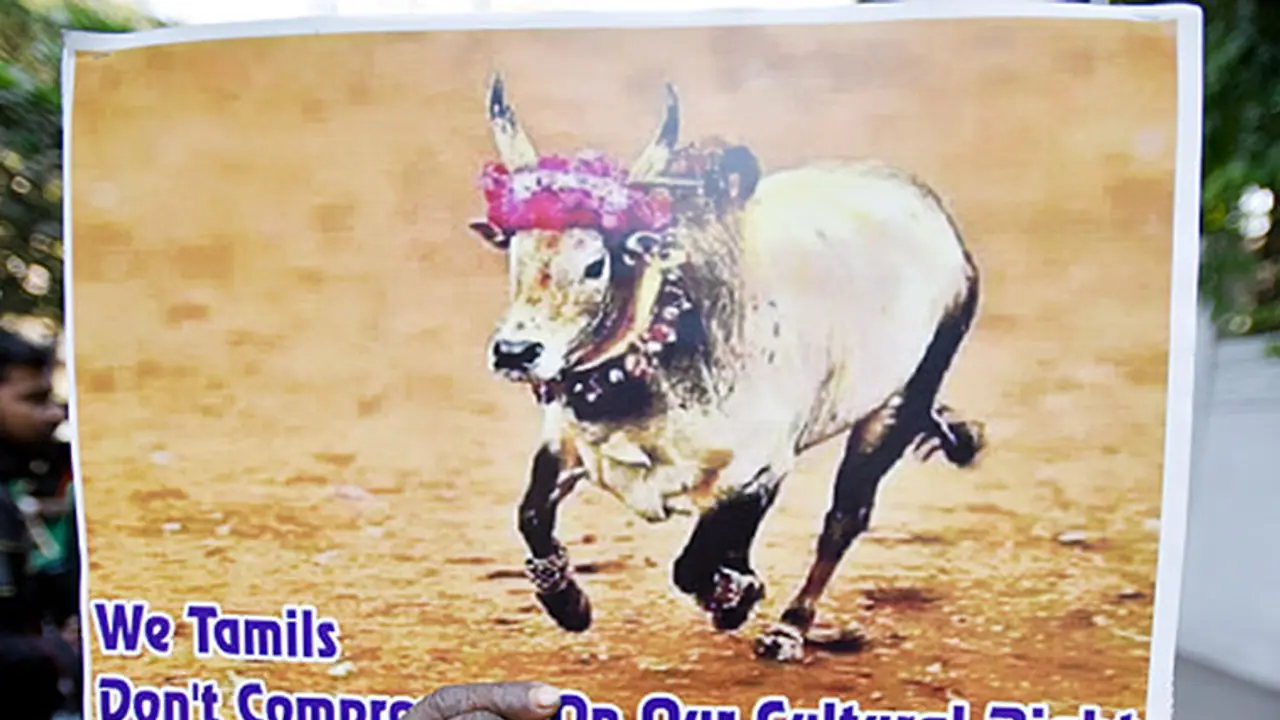Until April 2015, bull race events used to be held in various parts of Kerala. A High Court order put an end to the long tradition.
As the resolute Jallikkattu protesters were out on the street forcing the state and central government to bow to their demands, dozens led by Piravom MLA and former state minister Anoop Jacob took out a march in Kokkoor near Ernakulam on Sunday. The protesters lined up behind a decorated bullock cart, expressing solidarity with Tamil people.


At the back of their minds, they had a glimmer of hope that the victory of the Jallikkattu protests would also see a rebirth of the unique agrarian festival of Kalavayal and the exciting sport of Maramadi or Kalapoottu (bull race) which were banned two years back along with Jallikattu.
Until a single bench of Kerala High Court dismissed a petition in April 2015, seeking an exemption for bull racing from the ban on using bullocks as performing animals that outlawed Jallikkattu, the post harvest festival of Kalavayal used to be celebrated every year in Kokkoor village. The festival was unique in many respects and used to witness massive public participation. The most exciting part of the festival was Maramadi, in which trained bullocks would race through muddy fields in an animated display of tradition and strength. The post harvest festival was also the beginning of a new season of paddy.
Similar bull races used to be held in Palakkad, known as the rice bowl of Kerala, Pathanamthitta and the paddy belt of Malappuram districts. Specially trained bulls and racers were once the symbols of pride of each village or the clubs that participate in the festival. Pothottam, ( the race of buffaloes), a predominantly Dalit tradition, was also part of the festivals at many Kavus (sacred groves) across the state, especially in central Kerala.
Bull races were a recurrent motif in Malayalam films, generally used to give that nostalgic village feel to film songs and at times to accentuate the manliness of the hero. Kerala tourism calendar also used to sport bullock races across the state.
A division bench of the HC clarified in September 2015 that bull race also amounted to the use of bulls as performing animals and hence the Central Govt.'s notification regarding Jallikkattu would apply to it as well. Bull racing events like Kalapoottu, Kannupoottu and Maramadi would fall in the category of festivals similar to Jallikattu that was banned by the Supreme Court, the court observed.
The state government took the stand that the various forms of bull race performed in the state were akin to that of Jallikattu and that festivals would clearly violate the provisions of Prevention of Cruelty to Animals Act. The animals paraded in these festivals are prone to harmful injuries as a small knife was usually attached the whip with which the animals were being beaten up during the spirited competition.
Though the popular and traditional agrarian event was banned, Kerala did not witness any protests, except a few litigations.
